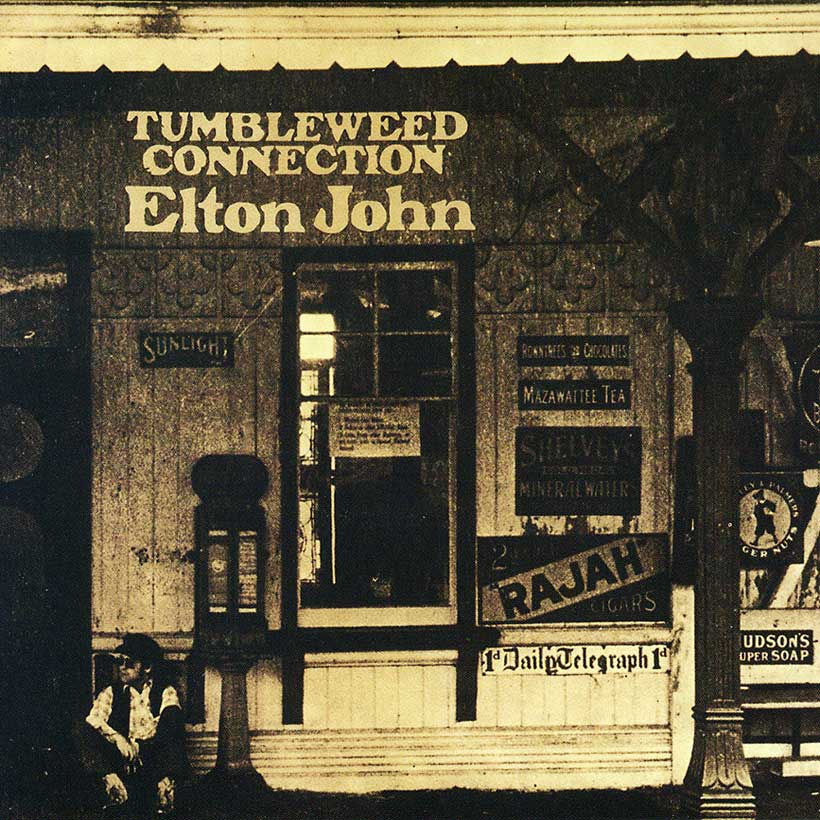
We run down the colossal and breathtaking works by the genuinely excellent artist Elton John as he is our Artist Of The Month. Collaborating with lyricist Bernie Taupin since 1967, John is one of the most successful artists of all time, having sold over 300 million records in a six-decade career in music. We will run down four albums every post and go through his incredible catalogue. Enjoy!
Empty Sky (1969)

Many people forget that 1969's "Empty Sky" was Elton's actual debut album; like many major rock stars such as Bowie, Iggy or Lou; the debut album had to contend with the absence of a promotional campaign, the lack of funding for supporting tours, and not being brought to the attention of critics and listeners enough. Thus, "Empty Sky" was silently released and then swiftly fell
off the radar in the rock world, and still in many ways remains so today, despite being re-released once Elton and Bernie became a hit. When listening to the album, it is clear that Elton and Bernie are still sharpening their tools and developing their sound. Yet, "Empty Sky" embodies the hard-edged rock and emotional ballads their eponymous follow-up would build on a year later. "Empty Sky" is perhaps one of the most ambitious albums Elton and Bernie ever released, and although there are not many forgotten gems on the album, it is still one of their strongest. The stand-out tracks would probably be "Lady Samantha" and "Skyline Pigeon."
Elton John (1970)

After the silent reception of 1969's "Empty Sky" and an unsuccessful attempt at joining King Crimson, Elton and Bernie followed with 1970's "Elton John," which was immediately a much more focused and realized record that deservedly became their first U.K. hit. With "Elton John," the change was straightforward and swift; the music had become sharper and more diverse. Bernie's lyrics had become more personal, relevant, and meaningful without losing any of their commercial appeals. Where "Empty Sky" faltered, Elton John makes up for everything and some. "Take Me to the Pilot" might not make much sense lyrically, but John had the good reason to ground its willfully cryptic words with a catchy blues-based melody. Next to the increased importance of songcraft, the most noticeable change on "Elton John" is the addition of Paul Buckmaster's grandiose string arrangements. Buckmaster's orchestrations are never subtle, but they never overwhelm the vocalist nor make the songs schmaltzy. Instead, they fit the ambitions of John and Taupin, as the instant standard "Your Song" illustrates. Other strong tracks, undeveloped yet underrated, would be "I Need You To Turn To" and the swaggering rocker "No Shoe Strings On Louise," making Elton's true debut shine even more with the charm of youthful enthusiasm and determination for success.
Tumbleweed Connection (1970)

With 1970's "Tumbleweed Connection," Elton and Bernie's third outing together; rather than repeating or following-closely the formula that made Elton an international star and musical sensation, the duo attempted their most ambitious record to date for the follow-up to their breakthrough. The loose concept album about the American West emphasized the pretensions that always lay beneath their songcraft; the poetic landscape and rustic aesthetic of that iconic cultural image had characterized Bernie's lyrics and Elton's vocal delivery. Over half of the album's tracks do not radiate the conventional pop song structures that were more predominant of the preceding self-titled album; instead, they flow between verse and vague choruses as if they were written and performed by rogues and vagabonds of the West. This experiments remarkably successful and results in what I perceive to be Elton's best album, primarily because Bernie's lyrics are so evocative, and Elton's melodic sense is at its best; a wave that they would ride throughout the decade, becoming immortalized as one of rock's most excellent, most influential songwriting partnership. As should be expected for a concept album about the Wild West, the music draws from country and blues in equal measures, ranging from the bluesy choruses of "Ballad of a Well-Known Gun" and the modified country of "Country Comfort" to the gospel-inflected "Burn Down the Mission" and the rolling, soulful "Amoreena." "Elton" is typically remembered for the perfect album, even though it is underrated for not featuring any of the hit singles.
Madman Across the Water (1971)

Elton and Bernie delivered another excellent collection of songs with 1971's "Madman Across the Water," adding more fuel to the intense fire that was their creative and commercial winning streak, blazing their way into the Top 10. The dynamic duo trade in the cinematic aspirations of predecessor "Tumbleweed Connection" for a tentative stab at prog-rock. Like its two predecessors, "Madman Across the Water" is driven by the sweeping string arrangements of Paul Buckmaster, who gives the songs here a richly dark and haunting edge. And these are songs that benefit from grandiose treatments. With most songs clocking in around five minutes, the record feels like a significant work, and in many ways, it is. There is no denying the high quality of "Madman Across the Water," which is evident on hard-hitting character sketches like "Levon" and "Razor Face," as well as the timeless melodramatic "Tiny Dancer," as well as the eerie title track that radiates paranoia. "Indian Sunset" deserves so much more recognition than what it is given; some of the best lyrics by Bernie put to the most soulful and introspective music in Elton's career. "Madman" is not without its faults, but the album remains an ambitious and rewarding work and perhaps the darkest album in Elton's repertoire.
Comentários